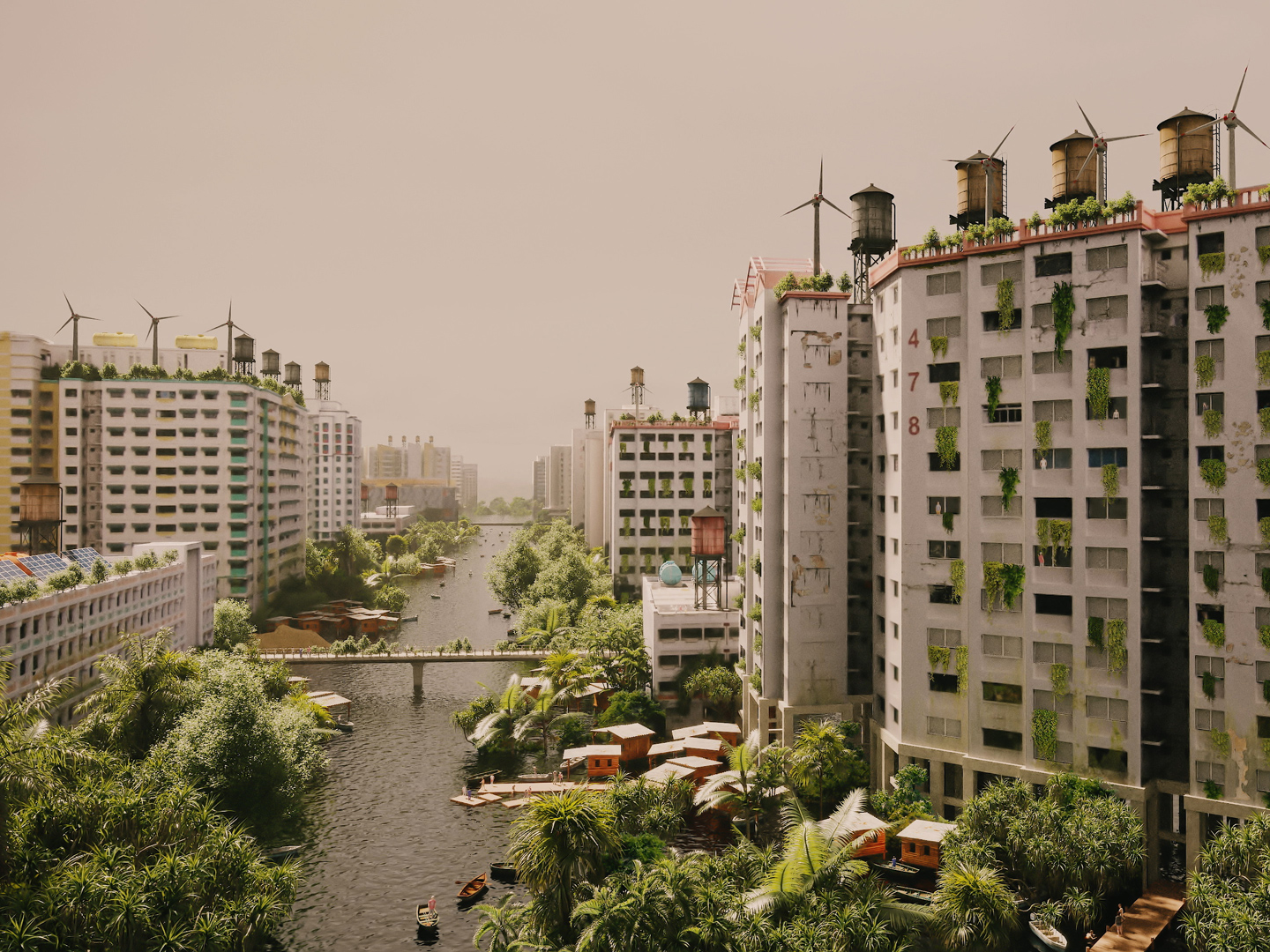- A London design studio Superflux created a prototype of what a typical apartment might look like as the effects of climate change intensify.
- The exhibit is called “Mitigation of Shock, Singapore,” modeled after an earlier exhibit in London.
- The apartment has clues to what life could be like, with tools for hunting and ration cards, indicating a future of scarcity.
- Visit Business Insider’s homepage for more stories.
Superflux is offering a look at what life might be like in 50 years, and some people think it’s bleak.
At Singapore’s ArtScience Museum, the 2219:Future Reimagined exhibition ” invites visitors to explore our world as it changes over the next 200 years.” The first room of the exhibition is titled “Mitigation of Shock, Singapore,” based on a previous installation in London by the design studio.
“Mitigation of Shock, Singapore” shows a vision of domestic life 50 years out, when rising ocean levels have flooded cities, and people are forced to grow their own foods and turn to alternative sources of nutrition as global supply chains collapse. The creators noted that the installation, which is a prototype of a future apartment, isn’t necessarily what it thinks will happen, as much as it is one possible outcome based on evidence.
The earlier London installation showed an apartment in a future London ravaged by climate change in 2050, only 30 years into the future. The two installations were similar, but they received very different reactions. Visitors to the London exhibit were angry and upset, while in Singapore, visitors thought the prediction was too optimistic, FastCompany reported.
Take a look at the pictures to see what life might look like in 50 years.
Outside the apartment, a kayak and paddle indicate a city that has been flooded as a result of climate change.

Walking inside, Superflux wrote that the apartment shows that "The world has irrevocably changed, and the family home is now a space to not only live, but to survive."
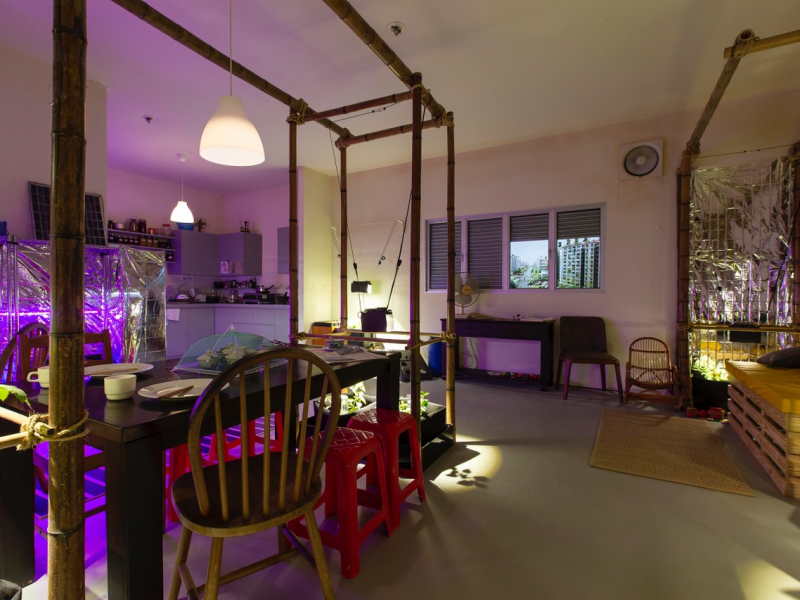
Large areas of what would typically be a living space are instead devoted to growing food.

Inhabitants have come to rely on a diverse set of foods that can be grown indoors, including mushrooms...
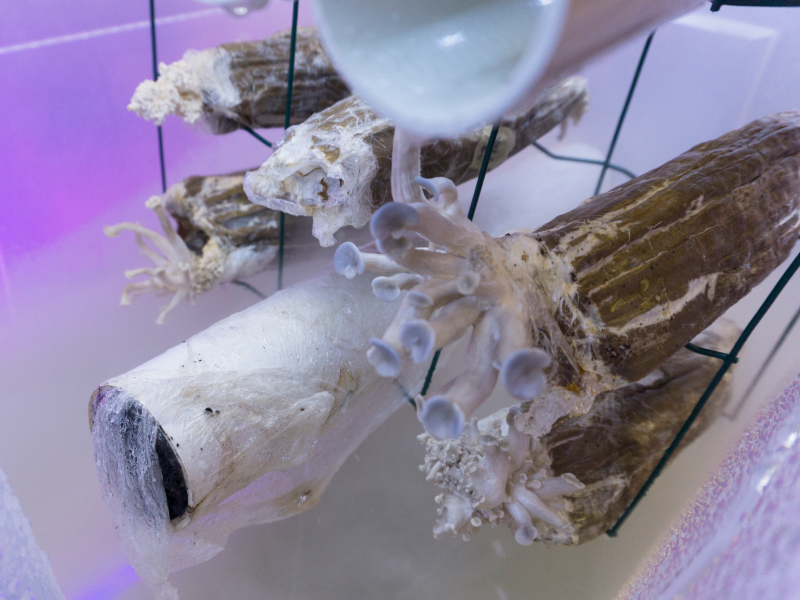
Mealworms...

And other plants.

The entire apartment is aglow from the plant setups...
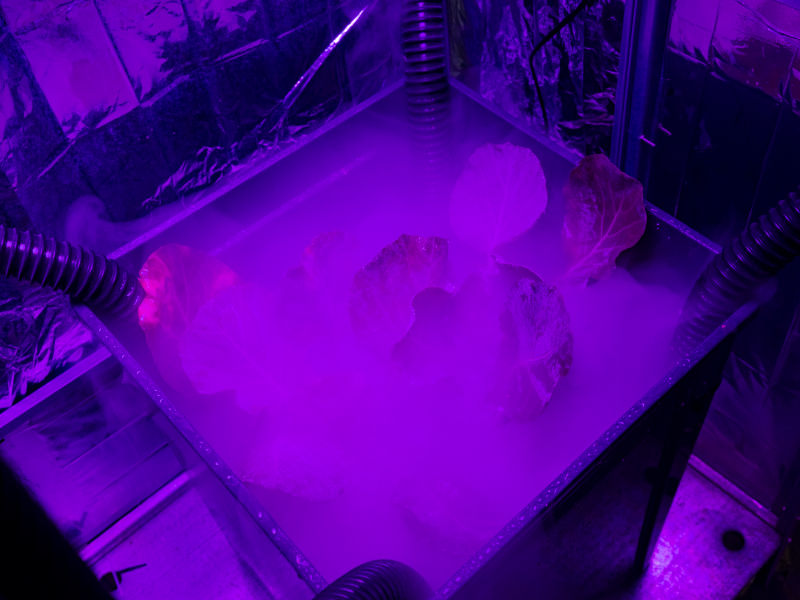
...giving it an almost otherworldly purple haze.
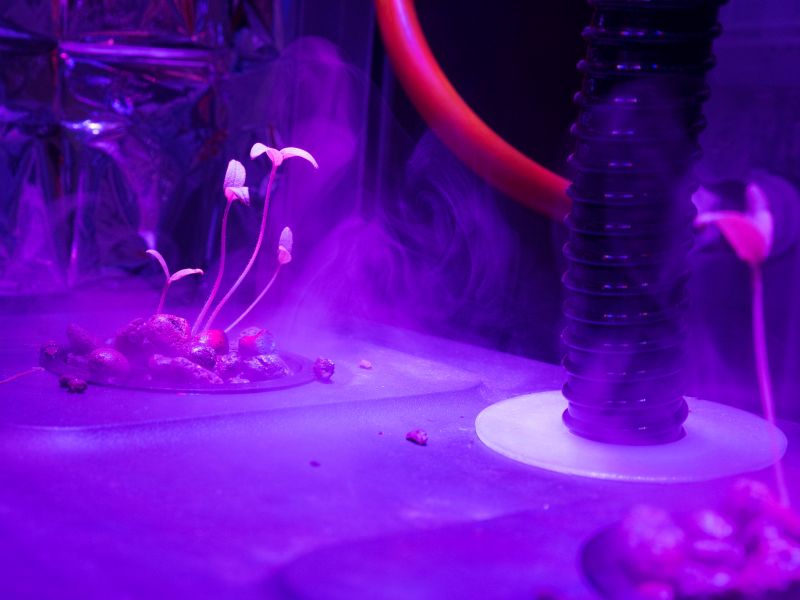
While it's clear inhabitants are growing food, other aspects of the apartment indicate other sources of nutrition.

A handmade crab catcher gives another clue to the newly aquatic environment.

As do snares and spears.

Future dinners could also consist of insects, like this recipe for wild pepper and roach stir fry.
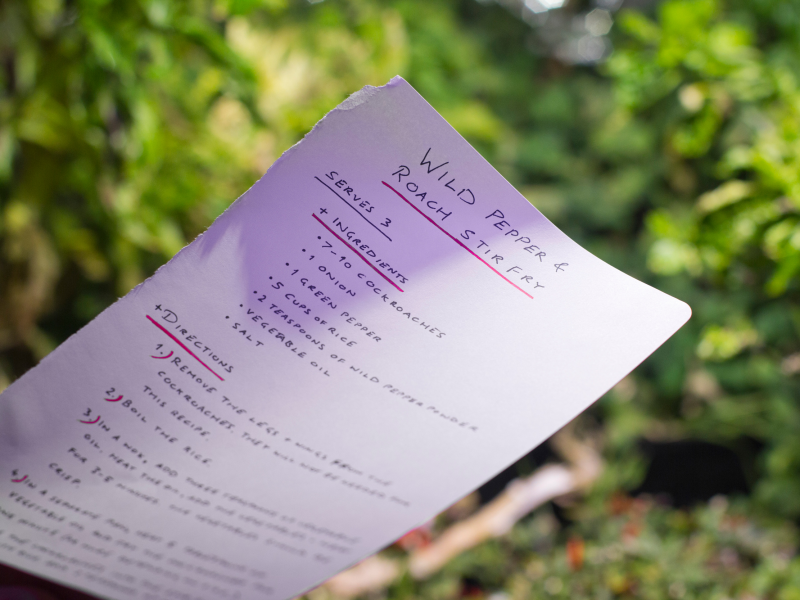
A bookshelf gives another peak into what life might be like, with titles like "How to Cook in a Time of Scarcity."

And, more disturbingly, "Pets as Protein."
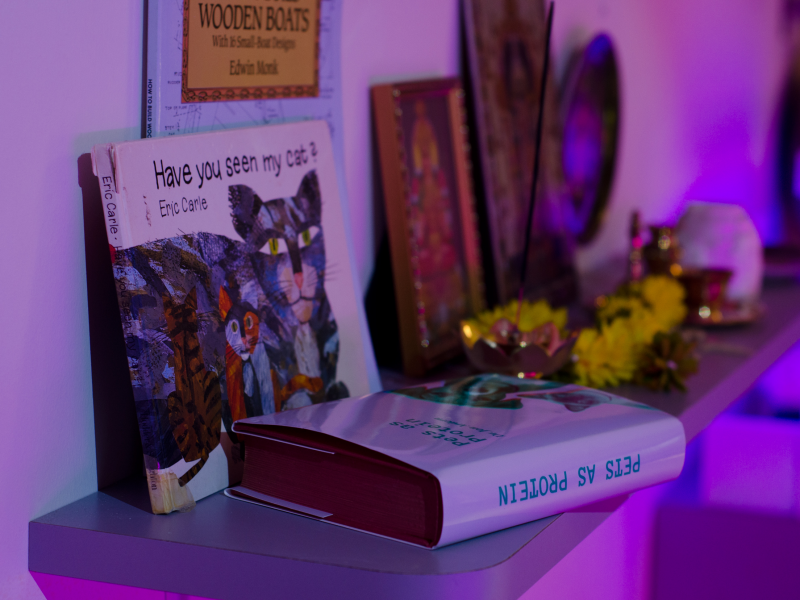
A newspaper also makes it clear that a food shortage has resulted from climate struggles.
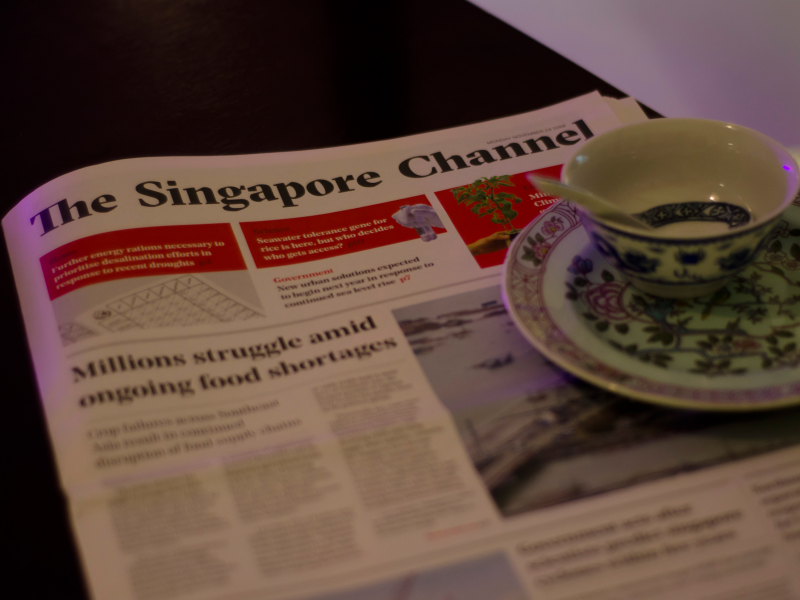
A ration card shows the same.

A look out the apartment's window shows a flooded Singapore.
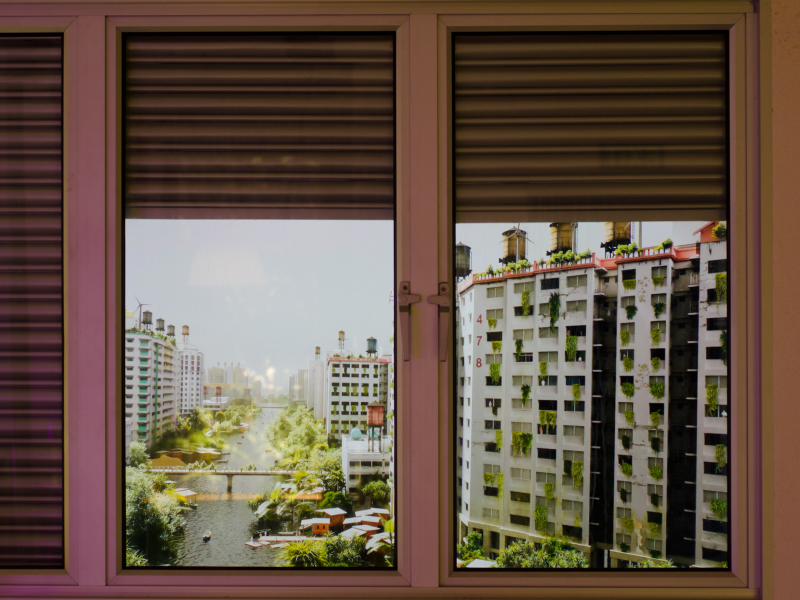
Though the exhibit might seem grim, the creators actually see it as hopeful.

The creators of the exhibit wrote that they hope it will show the resourcefulness of people as they adapt to a changing environment.
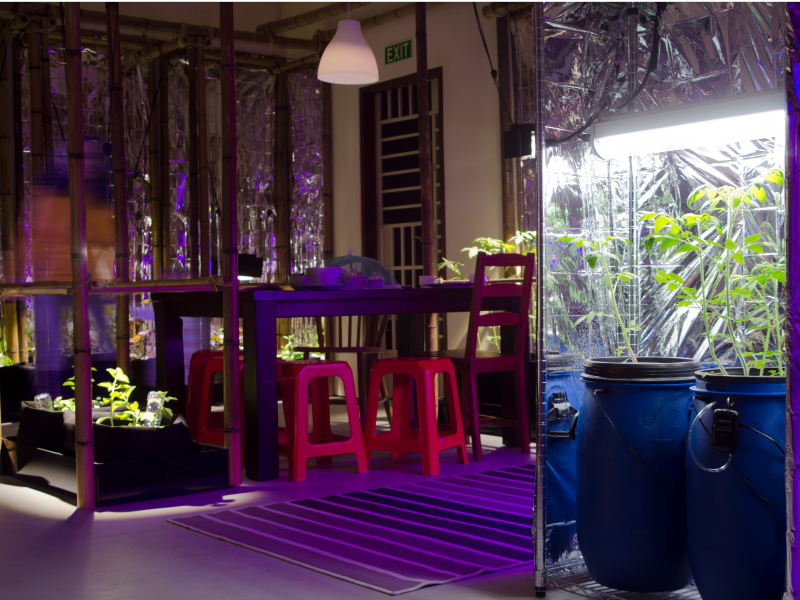
It can be hard for people to envision how climate change will change aspects of day-to-day life.

"Our immersive simulation merges the macabre and the mundane as the social and economic consequences of climate change infiltrate the domestic space," Jon Arden, cofounder and artistic director of Superflux, said.

Anab Jain, the other cofounder and creative director of Superflux, agreed that fear and hopelessness make many people feel incapable of combatting climate change or envisioning the future.
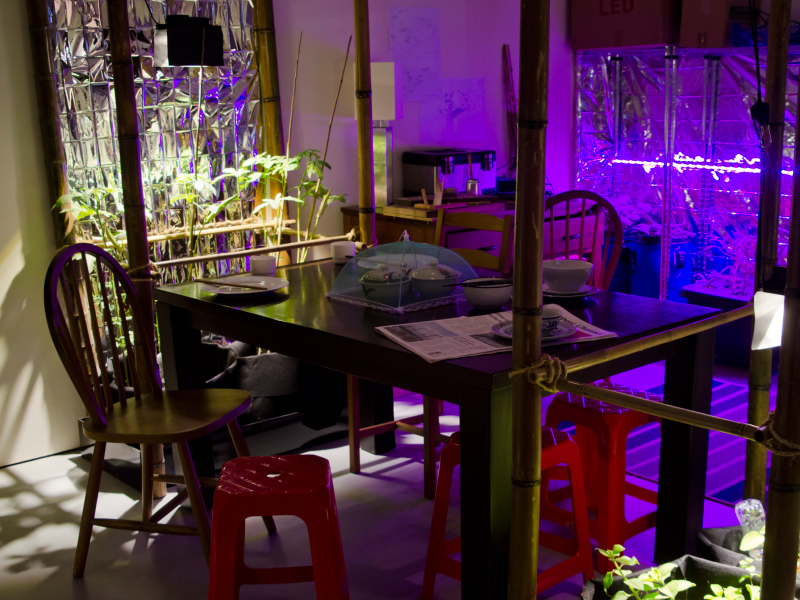
This project, she says, is to show people that alternative, non-apocalyptic futures are possible.
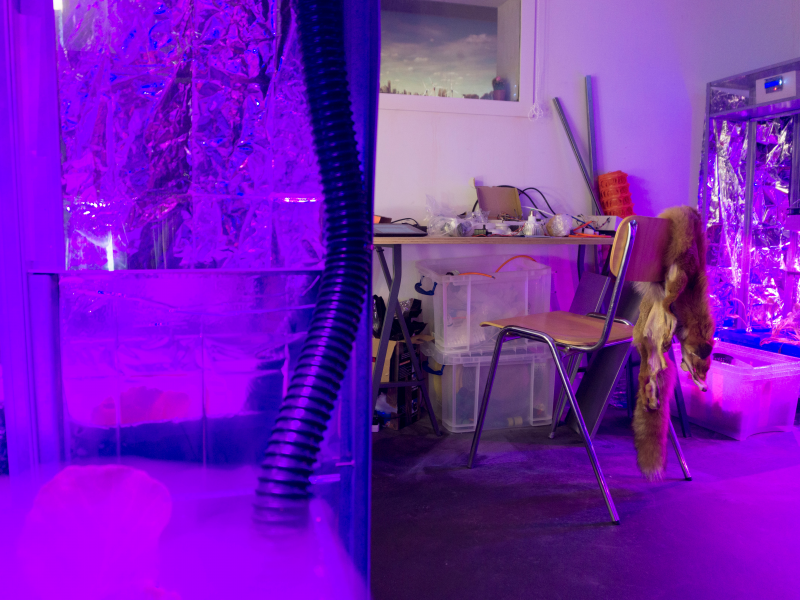
Together, the city view, the tools, the artifacts, the plants – tell the story of adaptation and extreme measures people have had to make to, not just survive, but prosper in a post-climate change future" Jain said.

The apartment prototype is on display at the ArtScience Museum in Singapore until April.

Find out more here.

